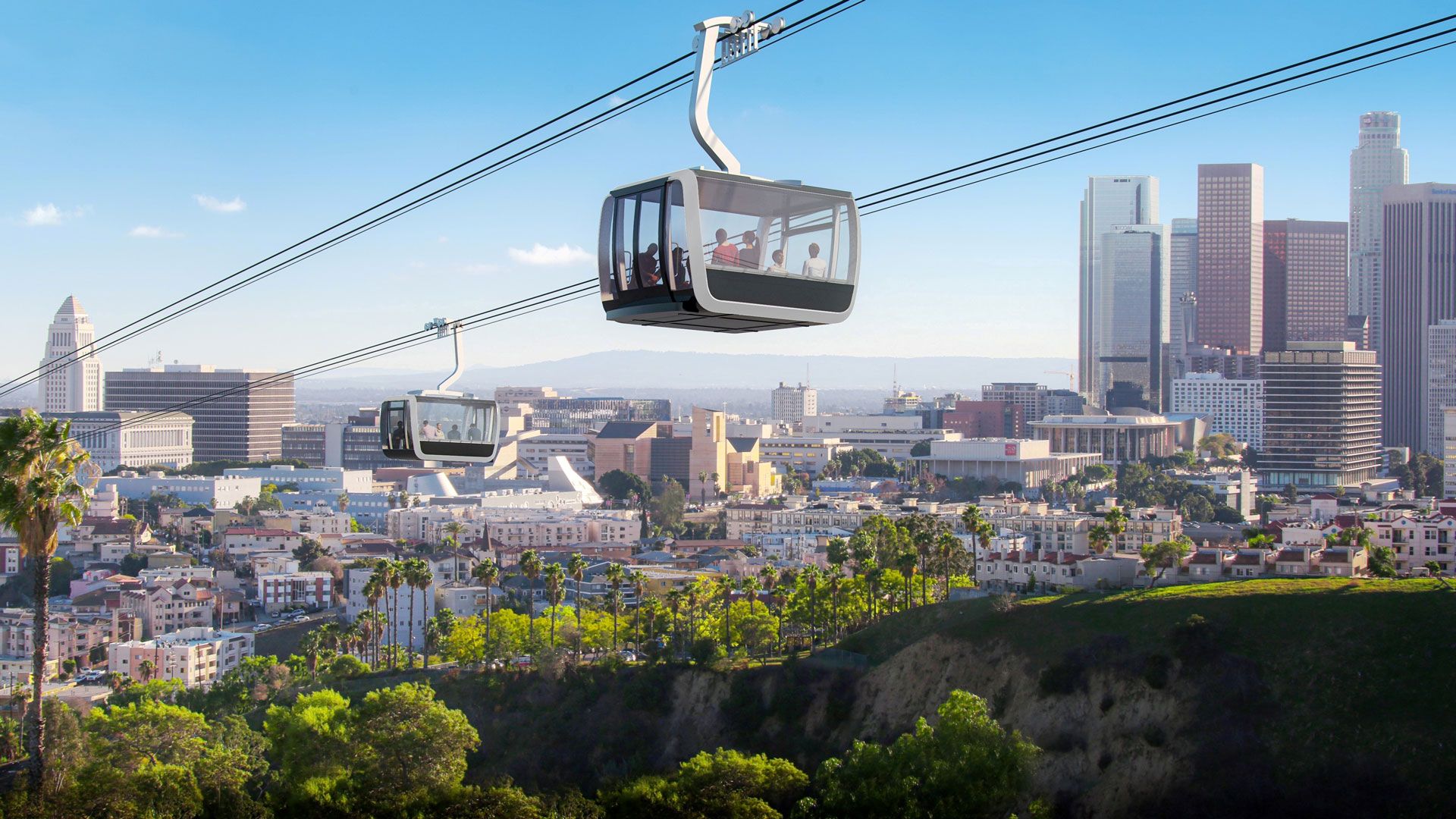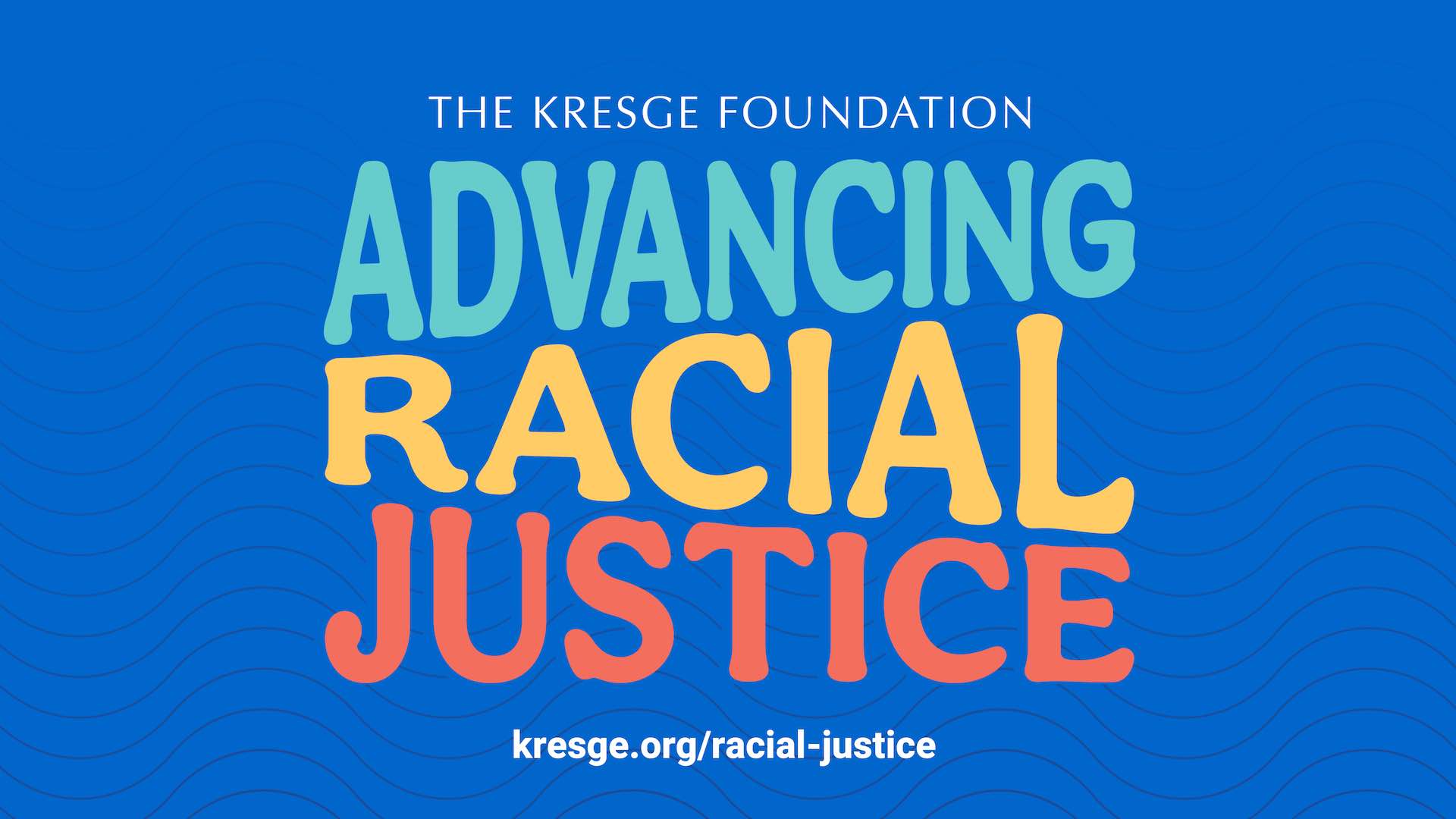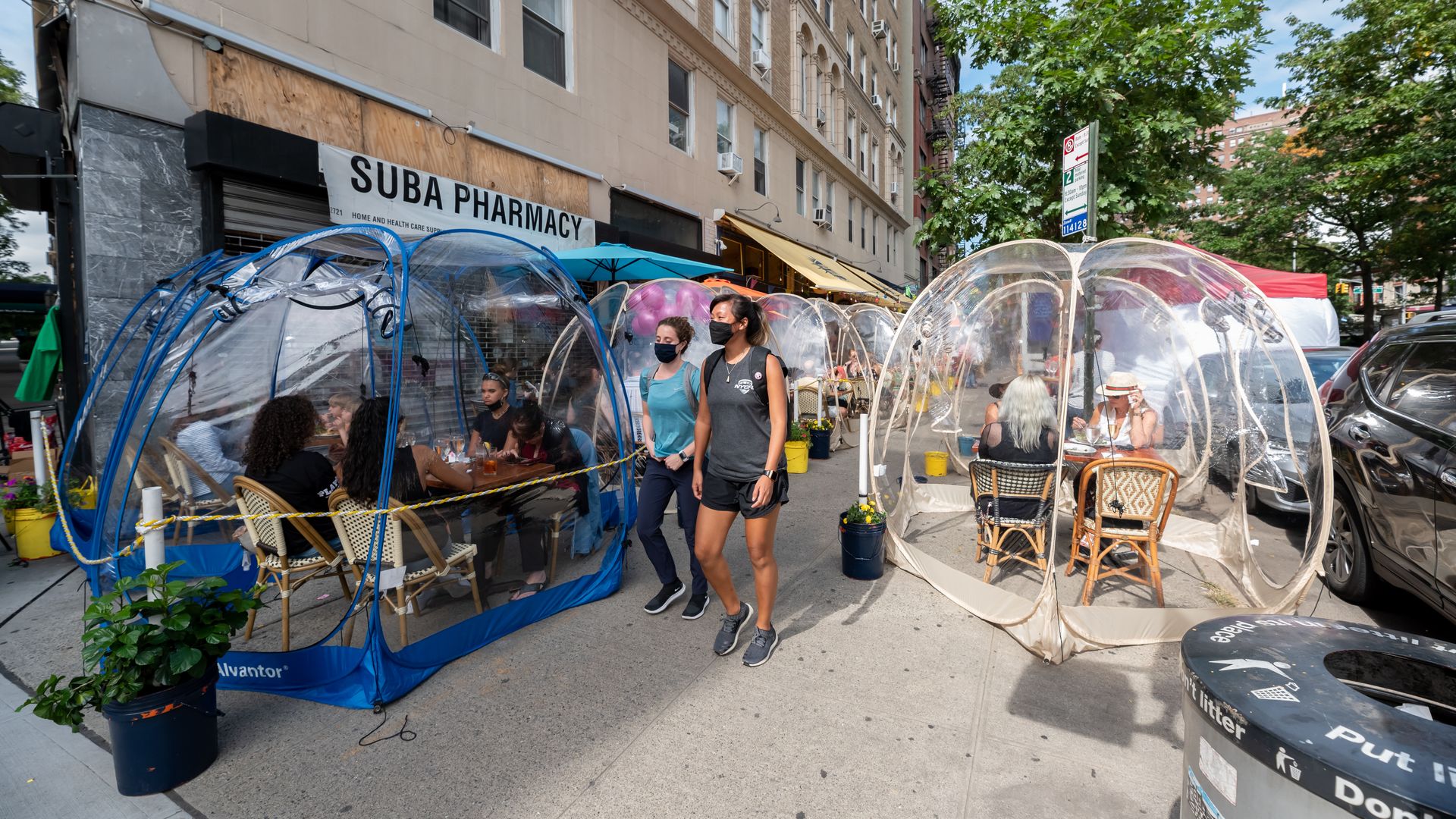| | | | | | | Presented By The Kresge Foundation | | | | Axios Cities | | By Jennifer A. Kingson ·Nov 19, 2020 | | Welcome back to Axios Cities! Today's newsletter is 1,504 words, a 5½-minute read. - Exciting news: Axios is going local. We're launching four new newsletters focused on the news that matters in your own hometowns, curated by a local reporter. Sign up here.
Situational awareness: New Orleans has canceled Mardi Gras parades because of COVID-19, and the New Year's Eve ball drop in Times Square will be "virtually enhanced" but crowd-free. | | | | | | 1 big thing: Your air gondola may be waiting |  | | | Rendering of an air gondola system proposed for Dodger Stadium in Los Angeles, per the Los Angeles County Metropolitan Transportation Authority. | | | | Air gondolas — ski-lift-type conveyances that have become common sights in South American cities like Medellín, Mexico City and La Paz — could one day dot the U.S. urban landscape, some transportation planners say. Why it matters: These appealing and eco-friendly cable cars — serving commuters and tourists alike — move people quietly and expeditiously and seem tailor-made for the COVID-19 era, since they fit a small number of riders per car. Driving the news: In the Tampa Bay area, transit officials are about to study the possibility of building an air gondola system for Clearwater Beach — where parking is tight and traffic can be nightmarish — and St. Petersburg. - The concept "is still in its early stages, but planners say it would use a two-mile cable car line to connect downtown Clearwater to the beach, with the potential to expand across the Tampa Bay region into cities including St. Petersburg," per Smart Cities Dive.
- There's also an air tram proposal for Dodger Stadium in LA, and the Oakland A's are floating the idea as they prepare to open a new ballpark.
- Existing U.S. systems include the Portland Aerial Tram in Oregon, the Roosevelt Island Tram in New York City and the Skyliner at Disney World.
The big picture: Aerial trams took off like wildfire in South America after Medellín, Colombia, built its system in 2004, and enthusiasm is rising in the U.S., says Steven Dale, principal of SCJ Alliance, an engineering and design consultancy that specializes in cable car systems. - "The momentum is already here — that's not even a question," Dale tells Axios. "North America, three to four years ago, was not much of a market for us, but the amount of attention that's being paid to the technology right now is enormous."
- Various schemes have been proposed — like hyperloop or magnetic levitation (maglev) — but so far those types haven't been commercially built.
- "One of the advantages of the gondolas is that they exist," says Dale. "Cities and governments are very, very apprehensive about new technologies — they don't want to commit to something new and crazy and wild."
But, but, but: Aerial tram proposals have been tossed around for years, with dozens of cities flirting with the idea. They have to be fast, convenient and economical enough to get people to ditch their cars. Where it stands: Come January, the Tampa Bay Area Regional Transit Authority (TBARTA) will seek bidders for a year-long study, Brian Pessaro of TBARTA tells Axios. - "There has to be some sort of geographic obstacle that the gondola is helping you to get over," he says. In Clearwater Beach — on a barrier island — that's "a body of water and a crowded causeway."
- An alternative proposal that would rely on maglev technology is being pushed by a group called BeachTran Clearwater.
- Sky transport would be "a combination of entertainment and transportation," Whit Blanton, executive director of Forward Pinellas, a land-use planning authority in Pinellas County, tells Axios. "It has that real 'aha!' value, a 'wow' factor."
|     | | | | | | 2. Biden Day 1 challenges: Cities getting desperate |  | | | Illustration: Aïda Amer/Axios | | | | Dire budget problems in cities from coast to coast mean that furloughs and layoffs of essential workers could ring in the new year. So President-elect Biden will face instant, high-stakes calls for relief. Why it matters: Suffering municipalities say there's no way they can tackle COVID-19 and all their other problems without direct and immediate aid. The big picture: "If we don't see this relief package, it's going to be hard for us to keep the lights on" and continue responding to 911 calls, says Joe Buscaino, president of the National League of Cities and president pro tempore of the Los Angeles City Council. - City leaders — mostly Democrats, but not all — are ecstatic because they see the Biden administration as a friendly one that will keep their concerns front and center.
- Many are elated by Biden's choice of Julie Chávez Rodriguez, a Biden deputy campaign manager who previously advised Kamala Harris' presidential campaign, as director of the White House Office of Intergovernmental Affairs.
- Biden's first elected office, in 1970, was on the New Castle County Council in Delaware. "He gets us, he understands us," Buscaino said. "The Trump administration really did not have a direct commitment to local elected officials."
Where it stands: Both the U.S. Conference of Mayors and the National League of Cities have put out priority lists for the incoming administration, which include perennial wanna-haves like building infrastructure and affordable housing, workforce training, and reducing gun violence. - But the urgency of addressing COVID-19 surmounts and supplements these lists.
- "We don't have any other choice but to do it at once," says Ras Baraka, the mayor of Newark, New Jersey.
There's a lot of ground to be made up, municipal officials say. "We've lacked a domestic policy in this country for the last four years," Pittsburgh Mayor William Peduto tells Axios. Go deeper |     | | | | | | 3. A newcomer to the "granny flat" boom |  | | | Illustration: Eniola Odetunde/Axios | | | | As the pandemic causes many to rethink their housing choices, accessory dwelling units (ADUs) — or granny flats — are seen as viable options for multigenerational housing or singles who want to get out of apartment buildings, Axios' Kia Kokalitcheva writes. Driving the news: Cottage, a San Francisco-based startup that sells ADUs to homeowners in the Bay Area, has raised $3.5 million in seed funding led by Susa Ventures and Base10. The big picture: In U.S. cities, about 75% of the land is zoned for single-family housing only, and proposals for multifamily housing often run up against NIMBY-ist opposition. - A set of new ADU rules went into effect in California in January, making it easier for homeowners to add these extra units.
- Most significantly, homeowners can now add a second ADU to their property, and municipalities are barred from limiting ADUs to less than 800 square feet and 16 feet tall.
- Cottage, founded a year ago by Alex Czarnecki, is the latest startup to join the ADU boom. In October, Abodu announced $3.5 million in seed funding.
How it works: Cottage's pitch is that it offers custom units and charges less than many alternatives, including some prefab options. - Cottage says that because it can cut big deals with designers and contractors, it can get lower costs for its customers, to whom it charges a fee for managing the process.
- After checking out a property and discussing what the client wants, Cottage budgets about one to one-and-half months for the design, about two to three for permitting, and another three to four for construction, says Czarnecki.
- The units run about $100,000 for an entry-level garage conversion and $150,000 for a one-bedroom detached backyard unit.
Read the full story. |     | | | | | | A message from The Kresge Foundation | | Kresge Foundation commits $30M to support racial justice | | |  | | | | The investment spans nearly 60 racial justice organizations that are working in urban communities and at the national level. The goal: Ensure racial justice activists have the resources to make the lasting changes needed to confront the barriers of systemic racism and inequality. | | | | | | 4. Where Americans are opening their wallets |  Reproduced from Mastercard; Chart: Axios Visuals Cities like Atlanta, Houston and Orlando helped buoy merchants' coffers in October, according to a snapshot from Mastercard, which looked at retail sales in the 20 largest U.S. metropolitan areas during the first 10 months of the year. Why it matters: So far it looks like cities that stayed open the most during the pandemic notched bigger gains, according to Mastercard, which tracked all types of transactions (not just credit and debit cards). By the numbers: Retail sales rose a paltry 0.3% in October, down from 1.6% in September, according to the Commerce Department, which looked at month-over-month sales (Oct. 2020 vs. Oct. 2019) compared with the 10-month-cumulative data examined by Mastercard. - Mastercard's assessment was rosier: It found a 6% rise in retail sales (excluding gas and auto) for the months through October — perhaps in part because merchants began holiday promotions early.
- Spending was down in two of the 20 metropolitan areas Mastercard examined— Chicago and San Francisco.
Cities that spent the most on... - Furniture and furnishings: Phoenix, Sacramento, Orlando and Austin.
- Grocery: Atlanta, San Diego, Sacramento, Boston and Seattle.
- Apparel: Orlando, Houston, West Palm Beach and Tampa.
Sob, sniff: Among respondents to an accompanying Harris Poll survey conducted for Mastercard, "most (73%) would give up their gifts altogether to spend face-to-face time with friends and family this holiday season." |     | | | | | | 5. Worthy of your time |  | | | People dine in bubble tents at the Cafe Du Soleil restaurant on the Upper West Side in September. Photo: Noam Galai/Getty Images | | | | Meet New York City's First Professional Streetery Builders (Curbed) - The construction of those outdoor dining enclosures that are keeping some restaurants alive amid COVID-19 has gone from a makeshift business to a mainstream one.
Apartment Investors Mull Opportunities in Distressed Malls (National Real Estate Investor) Why Biden didn't do better in big cities (Politico) - "There was a backlash, I think nationwide, among people who were afraid of the riots and afraid of what they saw and afraid of this 'defund the police' stuff, which, although we tried to debunk, we didn't debunk enough," Pennsylvania Democratic Gov. Ed Rendell told Politico.
|     | | | | | | 6. "Freedom from Want" |  | | | Norman Rockwell's 1942 painting "Freedom from Want" is also called "The Thanksgiving Picture." Photo: Library of Congress/Corbis/VCG via Getty Images | | | | If you visit the Norman Rockwell Museum in Stockbridge, Massachusetts, one of the most poignant exhibitions is the "Four Freedoms," inspired by F.D.R.'s 1941 State of the Union address prior to U.S. participation in World War II. - The Saturday Evening Post ran Rockwell's paintings — "Freedom of Speech," "Freedom of Worship," "Freedom from Want" and "Freedom from Fear" — in 1943, when the headlines were dominated by European bombing raids and military campaigns.
Flashback: Each painting was paired with an essay, and "Freedom from Want" — with its voluptuous turkey and well-fed diners — ran with a piece about hard work and endurance by Carlos Bulosan, a Filipino immigrant who harvested grapes and asparagus in California before his successful career as a writer. - "We do not take democracy for granted," Bulosan wrote. "We feel it grow in our working together — many millions of us working toward a common purpose."
|     | | | | | | A message from The Kresge Foundation | | Kresge Foundation commits $30M to support racial justice | | |  | | | | The investment spans nearly 60 racial justice organizations that are working in urban communities and at the national level. The goal: Ensure racial justice activists have the resources to make the lasting changes needed to confront the barriers of systemic racism and inequality. | | | | Happy Thanksgiving! Axios Cities will be off next Thursday, but back in your inbox on Dec. 3. Don't forget to write: jennifer@axios.com. | | | | Axios thanks our partners for supporting our newsletters.
Sponsorship has no influence on editorial content. Axios, 3100 Clarendon Blvd, Suite 1300, Arlington VA 22201 | | | You received this email because you signed up for newsletters from Axios.
Change your preferences or unsubscribe here. | | | Was this email forwarded to you?
Sign up now to get Axios in your inbox. | | | | Follow Axios on social media:    | | | | | |









No comments:
Post a Comment